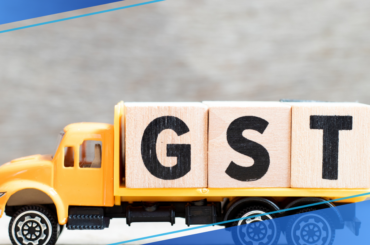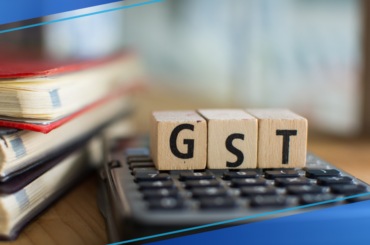As a business owner or entrepreneur in India, understanding who qualifies as a taxable person under the Goods and Services Tax (GST) regime is crucial. A taxable person is any individual or entity engaged in business activities within India, regardless of whether they are registered or required to be registered under the GST Act. If your business’s taxable turnover exceeds the established threshold limit, you’re considered a taxable person under GST.
Table of Contents
GST Definition of Taxable Person
Under GST regulations, the term “person” encompasses many entities, all of which may be classified as a person liable for registration. This includes:
-
An individual
-
A Hindu undivided family
-
A Company
-
A Partnership Firm
-
A Limited Liability Partnership
-
An Association of Persons or a Body of Individuals, whether incorporated or not, in India or outside India
-
Any Corporation Established by or under any Central, State, or Provincial Act, or a Government Company
-
Any corporate body incorporated by or under the laws of a country outside India
-
A co-operative society registered under any law relating to cooperative societies
-
A local authority
-
Government
-
Society as defined under the Societies Act, 1860
-
Trusts Artificial judicial person, not falling within any of the above categories
Who is eligible for GST registration?
The threshold limits for GST registration and eligibility vary based on your turnover and location:
1. For normal category states:
Goods suppliers: Registration required if turnover exceeds ₹40 lakhs
Service providers: Registration required if turnover exceeds ₹20 lakhs
2. For special category states:
Goods suppliers: Registration required if turnover exceeds ₹20 lakhs
Service providers: Registration required if turnover exceeds ₹20 lakhs
However, registration is mandatory in certain cases, regardless of turnover:
-
Persons making any inter-state taxable supply
-
Casual taxable persons making taxable supply
-
Persons who are required to pay tax under reverse charge
-
Persons who are required to pay tax under sub-section (5) of section 9
-
Non-resident taxable persons making taxable supply;
-
Persons who are required to deduct tax under section 51, whether or not separately registered under this Act
-
Persons who make taxable supply of goods or services or both on behalf of other taxable persons, whether as an agent or otherwise
-
Input Service Distributor, whether or not separately registered under this Act
-
Persons who supply goods or services or both, other than supplies specified under sub-section (5) of section 9, through such electronic commerce operator who is required to collect tax at source under section 52
-
Every electronic commerce operator who is required to collect tax at source under Section 52
-
Every person supplying online information and database access or retrieval services (OIDAR) from a place outside India to a person in India, other than a registered person
If you deal exclusively with goods or services exempted under GST, you’re not required to register.
Who is a Casual Taxable Person under GST?
A Casual Taxable Person is an individual who occasionally engages in transactions involving the supply of goods or services, or both while conducting business. This may be done as a principal, agent, or in any other capacity within a State or Union Territory where the person does not have a permanent place of business. To illustrate, let’s consider a consultant based in Delhi who occasionally provides taxable consulting services in Mumbai. In this scenario, the consultant would be considered a casual taxable person in Mumbai under GST regulations, as they don’t have a fixed place of business in that city.
Who is a Non-Resident Taxable Person under GST?
A Non-Resident Taxable Person (NRTP) under GST is an individual or a business who occasionally carries out transactions involving the supply of goods or services, or both, in any capacity, be it as a principal, agent, or otherwise. This person does not have a permanent place of business or residence within India. NRTPs are similar to casual taxable persons as both occasionally supply goods or services in a GST-applicable territory without a fixed place of business. The key distinction is that an NRTP doesn’t have a place of business anywhere in India. This category typically applies to foreign entities or individuals who conduct occasional business transactions within India.
GST Registration Criteria
While the threshold limit is a primary factor, several other criteria can necessitate GST registration. These criteria include:
1. Turnover Threshold Limits
As mentioned earlier, the turnover threshold varies depending on your business type and location. It’s crucial to monitor your turnover closely to ensure timely registration when you cross these limits.
2. Making Interstate Supplies of Taxable Goods or Services
If you’re engaged in interstate supply of taxable goods or services, you must register under GST, regardless of your turnover. This ensures proper tracking and taxation of goods and services moving across state borders.
3. Supplying Goods Through an E-commerce Portal
If you sell goods through e-commerce platforms, you’re required to register under GST, irrespective of your turnover. This rule aims to bring all online sellers under the GST network for better regulation and tax compliance.
4. Opting for the Composition Scheme
The composition scheme is a simplified tax structure for small businesses. If you opt for this scheme, you must register under GST, even if your turnover is below the threshold limit. This scheme offers lower tax rates but comes with certain restrictions.
5. Receiving Taxable Supplies from Unregistered Persons
If you receive taxable supplies from unregistered persons you’re required to register under GST. This provision ensures that large-scale purchases from unregistered suppliers are properly accounted for and taxed.
Related Read: GST Registration Limits: Threshold limit for GST Registration for 2025
Responsibilities of Taxable Persons
1. Tax Collection and Payment
As a registered person under GST, you’re required to collect GST on your taxable supplies at the applicable rates. You must then remit this collected tax to the government within the prescribed timelines. It’s crucial to maintain accurate records of tax collected and paid to ensure compliance.
2. Filing GST Returns
Regular filing of GST returns is a key responsibility of a taxable person under GST. You need to submit periodic returns detailing your sales, purchases, and tax liabilities. The frequency and type of returns depend on your business category and turnover. Timely and accurate filing is essential to avoid penalties and maintain good standing with tax authorities.
3. Maintaining Records
Proper record-keeping is vital under GST. You must maintain detailed records of all your transactions, including sales, purchases, stock, and input tax credits. These records should be readily available for audit purposes and must be retained for the prescribed period as per GST regulations.
Understanding your status as a taxable person under GST is crucial for business compliance. By staying informed about registration criteria, responsibilities, and obligations, you can ensure your business operates smoothly within the GST framework. Remember to regularly review your business activities and turnover to maintain compliance with GST regulations.
Frequently Asked Questions (FAQs):
1. How is a taxable person defined in the GST law?
A taxable person under GST is any individual or entity engaged in business activities within India whose turnover exceeds the specified threshold limits.
2. Are individuals also considered taxable persons under GST?
Yes, individuals can be considered taxable persons under GST. If an individual’s business activities result in a turnover that exceeds the prescribed threshold limits, they are required to register for GST.
3. What are the obligations of a taxable person under GST?
A registered person under GST has several key obligations. These include collecting GST on taxable supplies, remitting the collected tax to the government, filing regular GST returns, and maintaining detailed records of all transactions.
4. Can a taxable person claim an input tax credit under GST?
Yes, a registered taxable person can claim input tax credit (ITC) under GST. ITC allows businesses to claim credit for the GST paid on purchases used in the course of business.
5. Are there any exemptions for certain taxable persons under GST?
Yes, there are exemptions for certain categories of taxable persons under GST. For instance, businesses dealing exclusively with GST-exempt goods or services are not required to register, regardless of their turnover. Additionally, some small businesses may opt for the composition scheme, which offers simplified tax compliance.




